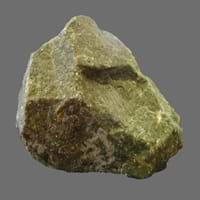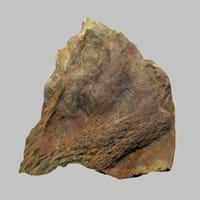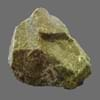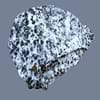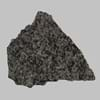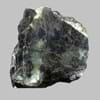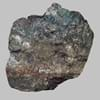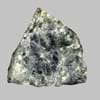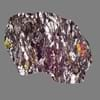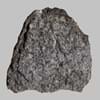Definition
Dunite is a green to brownish coarse-grained igneous rock mainly consisting of olivine
Siltstone can be defined as a fine-grained sedimentary rock which mainly consists of consolidated silt
Origin
New Zealand
Unknown
Discoverer
Ferdinand von Hochstetter
Unknown
Etymology
From the name of Dun Mountain, New Zealand, + -ite1
From English word silt and stone and from Proto-Indo-European root sal and stainaz
Class
Igneous Rocks
Sedimentary Rocks
Sub-Class
Durable Rock, Medium Hardness Rock
Durable Rock, Hard Rock
Group
Plutonic
Not Applicable
Other Categories
Coarse Grained Rock, Opaque Rock
Fine Grained Rock, Opaque Rock
Texture
Phaneritic
Clastic
Color
Dark Greenish - Grey
Brown, Red, Reddish Brown
Durability
Durable
Durable
Scratch Resistant
Yes
Yes
Appearance
Rough and Shiny
Rough
Interior Uses
Decorative Aggregates, Interior Decoration
Decorative Aggregates, Interior Decoration
Exterior Uses
As Building Stone, As Facing Stone, Garden Decoration, Paving Stone
As Building Stone, As Facing Stone, Garden Decoration
Other Architectural Uses
Curbing
Curbing
Construction Industry
As Dimension Stone, Cement Manufacture, Construction Aggregate, for Road Aggregate, Making natural cement, Raw material for the manufacture of mortar
Building houses or walls, Cement Manufacture, Construction Aggregate, for Road Aggregate, Making natural cement, Raw material for the manufacture of mortar
Medical Industry
Not Yet Used
Not Yet Used
Antiquity Uses
Artifacts, Monuments, Sculpture, Small Figurines
Artifacts, Sculpture, Small Figurines
Commercial Uses
Creating Artwork, Gemstone, Jewelry, Source of Chromite, Platinum, Nickel and Garnet, Source of Diamonds
Raw material for the manufacture of mortar, Soil Conditioner
Types
Not Available
Not Available
Features
Constitutes upper part of the Earth's mantle, Generally rough to touch, Host rock for Diamond, Is one of the oldest rock
Available in Lots of Colors and Patterns, Easily splits into thin plates, Generally rough to touch, High silica content, Very fine grained rock
Archaeological Significance
Monuments
Used
Not Yet Used
Famous Monuments
Data Not Available
Not Applicable
Famous Sculptures
Data Not Available
Data Not Available
Pictographs
Used
Not Used
Petroglyphs
Used
Not Used
Formation
Dunite is a plutonic ultramafic igneous rock consisting almost m olivine. It can be formed in two ways.
Siltstone is a type of sedimentary rock which is formed from fine rock particles. As the particles of eroded rock travel along with water, the edges of the rock are worn-out by water into a rounded shape.
Mineral Content
Amphibole, Chromite, Garnet, Magnesium, Olivine, Phlogopite, Plagioclase, Pyroxene
Calcite, Clay, Clay Minerals, Feldspar, Micas, Quartz, Sand, Silica, Silt
Compound Content
Ca, CaO, Fe, Potassium, Silicon Dioxide, Sodium, Titanium Dioxide
Aluminium Oxide, CaO, Iron(III) Oxide, Potassium Oxide, MgO, Sodium Oxide, Silicon Dioxide
Types of Metamorphism
Burial Metamorphism, Cataclastic Metamorphism, Contact Metamorphism
Not Applicable
Types of Weathering
Biological Weathering, Chemical Weathering, Mechanical Weathering
Biological Weathering, Chemical Weathering, Mechanical Weathering
Types of Erosion
Coastal Erosion, Glacier Erosion, Water Erosion
Chemical Erosion, Coastal Erosion, Glacier Erosion
Grain Size
Coarse Grained
Fine Grained
Fracture
Irregular
Conchoidal
Porosity
Less Porous
Highly Porous
Compressive Strength
Not Available
Cleavage
Imperfect
Not Available
Specific Gravity
3-3.01
2.54-2.73
Transparency
Translucent to Opaque
Opaque
Density
2.84-2.85 g/cm3
2.6-2.7 g/cm3
Specific Heat Capacity
Not Available
Resistance
Heat Resistant, Pressure Resistant, Wear Resistant
Heat Resistant, Impact Resistant, Pressure Resistant, Water Resistant
Deposits in Eastern Continents
Asia
China, India, Indonesia, Kazakhstan, Russia, South Korea, Thailand, Turkey
China, India, Kazakhstan, Mongolia, Russia, Uzbekistan
Africa
Morocco, South Africa
Namibia, Nigeria, South Africa
Europe
Finland, France, Georgia, Germany, Great Britain, Italy, Kazakhstan, Netherlands, Norway, Spain, Switzerland, Venezuela
Austria, Denmark, Germany, Great Britain, Netherlands, Norway, Poland, Sweden, Switzerland, United Kingdom
Others
Not Yet Found
Greenland
Deposits in Western Continents
North America
Canada, USA
Canada, USA
South America
Argentina, Brazil, Colombia, Ecuador, Venezuela
Brazil
Deposits in Oceania Continent
Australia
New Zealand, Western Australia
New South Wales, New Zealand
